83 F. high yesterday in the Twin Cities.
83 F. average high on July 31.
88 F. high on July 31, 2012.
Trace of rain fell yesterday at MSP International Airport (heavier shower over downtown Minneapolis late afternoon).
50-degree dew points into Sunday morning (more like early September).
Sunday night: best chance of widespread showers and T-storms.
A Fine Whine
It's human nature to compare, contrast and
complain. Compared to last summer's historic, blast-furnace heat, we're
having a cool summer.
Some, not all, feel cheated by the lack of hot
fronts. "What summer?" an old friend e-mailed me yesterday. "Our lake up
north has cooled by 13 degrees. Make it stop!"
Done. I kicked the Doppler, lit a candle and wrote my Congressman.
Don't hold your breath.
There is, as always, a silver lining, a
significant upside to the lack of jungle-like heat and humidity. We're
saving money on air conditioning, and this hint of September is keeping
the juiciest, most unstable air well south of Minnesota, meaning fewer
severe T- storms. SPC reports only 6 tornadoes in Minnesota this year.
Maryland has seen 10!
I suspect most readers will be just fine with
the weather into Saturday: blue sky, highs near 80F with a dew point in
the 50s. Like living in a postcard. Showers & storms return Sunday,
but next week looks dry and comfortable, brushed by another puff of cool
air by midweek. More sweatshirt weather up north, with little chance of
90s into mid-August. I'm betting on a sizzling front in time for the
Minnesota State Fair. Wait for it.
Nothing severe, no debilitating heat, no weather drama? Sounds pretty good to me.
"...
Indeed, if free-market conservatives really want evidence of
climate change, they ought to look towards the insurance markets that
would bear much of the cost of catastrophic climate change. All three
of the major insurance modeling firms and every global insurance
company incorporate human-caused climate change into their projections
of current and future weather patterns. The big business that has the
most to lose from climate change, and that would reap the biggest
rewards if it were somehow solved tomorrow, has universally decided
that climate change is a real problem. An insurance company that
ignored climate change predictions could, in the short term, make a lot
of money by underpricing its competition on a wide range of products.
Not a single firm has done this..." - from The Weekly Standard; more details below.
Sure It's Not September 1? ECMWF guidance shows
upper 70s to near 80 into Saturday, most of the showers and T-storms
Sunday may hold off until late in the day and at night. A cool Monday
gives way to a (slight) warming trend into the middle of next week,
another unusually strong cool front the end of next week, when highs may
hold in the low to mid 70s over southern Minnesota, with 60-degree
highs up north.
A Dry Spell. A few pop-up, instability showers and
T-showers may sprout over the Minnesota Arrowhead later this afternoon,
another area of rain brushing southwestern Minnesota tonight and early
Friday, but odds are most of us in the metro area will stay dry until
late Sunday or Sunday night.
Holding Pattern. A series of cool fronts, unusually
strong for early August, spark a few waves of showers and T-storms from
the Midwest to New England into Saturday, more soaking rains possible
for the East Coast. The southwest third of the USA remains hot and
steamy, pop-up instability T-storms over the Rockies, while the soggy
remains of "Dorian" soak the Bahamas. 84-hour NAM courtesy of NOAA.
A/C Optional Into Mid-August? After an outreak of
Septemberlike air late next week, we warm into the upper 70s and low 80s
the second week of July, cooler than average most days thru the period,
according to GFS guidance.
Summer of 2013: Actual Vs. Normal. Yesterday I
talked about the apparent disconnect (paradox?) of having not only more
HDD (heating degree days) but also CDD (cooling degree days) at MSP
since June 1. This graph perfectly illustrates the summer, to date,
showing the heat of mid-July, contrasted with the unusual chilly spell
at the end of last month. Thanks to Michelle Margraf at the Twin Cities
office of the National Weather Service, who adds: "
I've attached a
temperature chart showing the high and low temperatures against the
records and normals for June and July 2013. It highlights how unusually
cool last week was, as compared to normal, which brought us the above
normal HDDs. It also shows the warm period we had in early and mid July
which gave us higher than normal CDDs..."
Probability Of Rain In August. There is plenty of great, useful climate information at
weatherspark.com. Here's an explanation of the chart above: "
The
fraction of days in which various types of precipitation are observed.
If more than one type of precipitation is reported in a given day, the
more severe precipitation is counted. For example, if light rain is
observed in the same day as a thunderstorm, that day counts towards the
thunderstorm totals. The order of severity is from the top down in
this graph, with the most severe at the bottom."
Record Heat In Rare Places. Want to warm up? Head to
central Alaska. Fairbanks has seen 30 days at or above 80F so far this
summer. An odd (and amazingly persistent) kink in the upper level jet
stream pattern will keep Alaska, western Canada and much of the Arctic
unusually warm, while a series of September-like cool fronts dive-bomb
the Upper Midwest, Great Lakes and New England into much of the first
half of August. More on today's
Climate Matters segment: "
WeatherNationTV
Chief Meteorologist Paul Douglas looks at record heat in strange
places and asks "If you have one foot in ice water, one in boiling
water, do you feel average?" Also, more on the record cold in July for a
third of the US."
A Giant Vortex Of Wildfire Smoke Is Hovering Over Russia. A symptom of record heat gripping much of Europe, Russia and Siberia. More details in this clip from
The Atlantic Cities: "...
The
fire is having an easy time carbonizing the land because the
vegetation is dried out, a consequence of a nasty heat wave that saw
people wearing bikinis in Siberia. Sweltering summers have been the setting for several recent fire outbreaks in Russia – the one in 2010
that killed more than 50 people (or 56,000, if you factor in
heat-related deaths), for example, and the even-worse flame-plague in
2012 that sent smoke as far as Vancouver.
Many of the blazes were triggered by lighting, although humans were
also to blame with their poorly managed agricultural burns and
unattended campfires. A fire that sprouts up in the Russian hinterlands
stands a good chance of running rampant before the authorities get
around to battling it. That's because bureaucracy has made firefighting
a difficult prospect, as RT reports..." (Image above: NASA).
Massive African Dust Storm Cooling Atlantic Hurricane Odds For Early August.
This factor, along with a southward dip in the jet stream (and more
wind shear over the tropics) may result in fewer tropical storms, at
least for the first half of August. Dr. Jeff Masters has more
information at
Wunderground; here's his introduction: "
A
massive dust storm that formed over the Sahara Desert early this week
has now pushed out over the tropical Atlantic, and will sharply reduce
the odds of tropical storm formation during the first week of August.
The dust is accompanied by a large amount of dry air, which is making
the Saharan Air Layer
(SAL) much drier than usual this week. June and July are the peak
months for dust storms in the Southwest Sahara, and this week's dust
storm is a typical one for this time of year. Due in large part to all
the dry and dusty air predicted to dominate the tropical Atlantic over
the next seven days, none of the reliable computer models is predicting
Atlantic tropical cyclone formation during the first week of August..."
Image credit above: "
A massive dust storm moves off the coast of Africa in this MODIS image taken at 1:40 UTC July 30, 2013." Credit: NASA.
Ask Paul. Weather-related Q&A:
"Maybe only because I live here now, but I
moved from Minnesota to southern Oregon a couple of years ago, and I
find the weather out here fascinating.
The rain stops in May or June, and doesn't
start up again until September (or October, or November...) We get
about the same precipitation (~31") as the Twin Cities, but it all comes
in the winter months.
One of the new concepts I've become
familiar with, is that we do sometimes get thunderstorms that roll in
over the summer months. However, because the air is so dry, the
moisture never reaches the ground and we get "dry lightning".
Anyway, today is a perfect storm kind of
setup. The fuel moisture is at almost record-low levels, the entire
county (Josephine County) is swathed in very thick smoke from fires that
start on July 26 (so no visual spotting of fires), and the NWS has
forecast abundant dry lightning potential and 40 mph wind gusts from 9
am to 2 pm PST.
Obviously it's too late to write about it
in today's blog before it happens, but I know I always enjoy learning
about weather patterns in other areas, that are different from my own
experience. I thought this might be something you'd wan to add."
Meghan Pietila
http://www.wunderground.com/q/zmw:97526.1.99999.html?MR=1
Thanks Meghan - dry lightning is one of the few things we don't have
to worry about here in Minnesota on a consistent basis - humidity levels
are (usually) high enough that evaporation isn't a big factor with
spring/summer/fall T-storms. Thanks for sharing your experiences!
A New Way To Get Tornado Warnings? I haven't seen
any research to back up these claims, but there's some new technology
that (allegedly) detects tornadoes. No Doppler radar involved, this uses
sound waves undetectable by the human ear to warn of potential
tornadoes on the ground. We've all heard the descriptions ("it sounded
like a freight train!"), the rumble/roar that a tornado often gives off,
so I'm not dismissing this out of hand. And no, I have nothing to do
with this company - there are no commission checks. The company is
Tornadolert and here is an excerpt from their FAQ page: "
Tornadolert
is completely independent of the NWS tornado warning system. While NWS
issues tornado warnings to affected communities, Tornadolert warns of a
tornado that is a potential threat to your family. Tornadolert is
physically located in your home or vehicle. Utilizing patented
technology, Tornadolert detects sound below the human hearing range (infrasound) generated and radiated by all tornados. Tornadolert immediately
sounds an alarm when a tornado threatens your location. There are no
missed tornado detections and there are no false tornado alarms. Tornadolert emits
a constant tone alarm when a tornado is approximately 5 to 10 miles
away. When a tornado is less than approximately 5 miles away, Tornadolert emits a beeping alarm plus a flashing red light. Both alarms provide ample time to seek shelter."
Why Traffic Jams Are The Sign Of A Healthy Economy.
This one made me do a double-take. So we should be quietly pleased when
we're stuck on I-94 or 494 or The Crosstown Expressway? You 'betcha.
Quartz has the story; here's an excerpt: "...
Traffic
is used as a proxy for economic activity because it measures people
going to work and deliveries being made, according to INRIX. While the
capacity of a road changes infrequently, the commerce that transits
them fluctuates. Congestion on US roads was up 8.3% from last June,
according to data released today. Data from Europe show that Hungary
saw the largest traffic increase of the 32 nations INRIX tracks, up
107% from June 2012. However, traffic in Hungary was down 47% in the
first half of 2013, second only to Portugal, which saw congestion
decline 58%..."
The Era Of iSpying: Court Upholds Warrantless Cell Phone Tracking. Need to track someone without a court-issued warrant? There's an app for that.
The Atlantic has a rather disturbing story; here's the intro: "
As
ever, rumors are circulating about the features Apple may include on
the next iteration of the iPhone. Will it store fingerprints as a
security feature used to unlock the device or aid secure transactions?
That's the buzz.
The idea has undoubted appeal. I'd love to press my thumb to a screen
rather than entering the four-digit code the currently unlocks my
device. But wait. If I store a thumbprint on my iPhone, does that mean
the government would be free to seize it, sans warrant, on the theory
that I forfeited any expectation of privacy when I gave it to Apple?
There is reason to think so. The government doesn't need a search
warrant to extract location data from cell-phone users, a federal court ruled Tuesday, noting
that a cellular subscriber, "like a telephone user, understands that
his cellphone must send a signal to a nearby cell tower in order to
wirelessly connect his call..."
Photo credit: Gary Lerude/Flickr.
XKeyscore: NSA Tool Collects "Nearly Everything A User Does On The Internet". Uh oh. And you thought your mom judged you harshly. Here's a clip from a story at
The Guardian: "A
top secret National Security Agency program allows analysts to search
with no prior authorization through vast databases containing emails,
online chats and the browsing histories of millions of individuals,
according to documents provided by whistleblower Edward Snowden. The
NSA
boasts in training materials that the program, called XKeyscore, is
its "widest-reaching" system for developing intelligence from the
internet. The latest revelations will add to the intense public and congressional debate around the extent of
surveillance programs..."
Image credit:
One presentation claims the XKeyscore program covers 'nearly everything a typical user does on the internet'
Mutilated Cows Found At Missouri Farm: Police Not Ruling Out The Possibility Of Aliens.
Possibly the most bizarre headline of the week. No, it has no business
in a weather blog, but it still caught my eye. Details from
CBS St. Louis: "...
Mitchell
said the veterinarian told her the cuts to the cow were precise and
surgical. Also what seems to be the common denominator of all these
incidents is the lack of blood and other bodily fluids surrounding the
area and inside the animal. Mitchell told the Mutual UFO Network (MUFON)
that the third cow’s heart was removed and exposed, but was not taken.
She believes that maybe whoever did this was interrupted and she does
not rule out the possibility of aliens."
Photo Credit: The Mutual UFO Network.
How Your Job Is Slowly Killing You. Well there's a happy thought. But this infographic at
Huffington Post shows the various ways an especially stressful job can impact your health: "
More than eight in 10 Americans
are stressed about their jobs. Occupational stress is so pervasive
that we accept it as a fact of life, but the truth is that demanding
jobs do more than make us unhappy -- they can also spur some serious
health consequences. Chronic stress in general has been linked with a number of negative health issues,
including poor sleep quality, depression, weight gain and an increased
risk of developing a number of chronic diseases. And studies looking
particularly at work stress show that there are a number of physical and
mental effects unique to on-the-job strain. If you're part of that
blissful 17 percent of the population
who say that nothing about their job stresses them out,
congratulations. But for the rest of us, check out the infographic below
for some of the scary ways your high-octane career could be affecting
your health. If this research doesn't make you want to leave it all
behind to teach yoga or travel the world, we don't know what will..."
No, You're Probably Not Smarter Than A 1912-Era 8th Grader.
This cheered me up to no end yesterday. Take the 1912 quiz, and you'll
see why the headline isn't far off the mark. More details from
Smithsonian.com: "...
Eighth
graders needed to know about patent rights, the relative size of the
liver and mountain range geography. They had to be able to put together
an argument for studying physiology. Though some of it is useful, much
of the test amounts of little more than an assessment of random
factoids. So, if you’re anything like us, no, you’re probably not much
smarter than an 1912 Bullitt County eighth grader. But that’s okay..."
No, it's
not okay.
TODAY: Blue sky, a few afternoon cumulus, very nice. Dew point: 53. West 10. High: near 81
THURSDAY NIGHT: Clear and comfortable. Low: 60
FRIDAY: Plenty of sun, few complaints. High: 79
FRIDAY NIGHT: Patchy clouds, slight risk of a shower. Low: 61
SATURDAY: Blue sky, the nicer day. Dew point: 51. High: 77
SUNDAY: Dry morning as clouds increase. PM shower/thunderstorm over western Minnesota: 62. High: 76
SUNDAY NIGHT: Better chance of showers and T-storms. Low: 60
MONDAY: Lingering clouds, a drier day. High: 74
TUESDAY: Partly sunny, a bit milder. Dew point: 59. Wake-up: 58. High: 77
WEDNESDAY: Passing shower, windy & cooler. Wake-up: 59. High: 75
Climate Stories...
Report: Emissions From North Dakota Flaring Equivalent To One Million Cars Per Year. Here's a snippet from a story at
Think Progress: "
A new report
released today by the investor group Ceres found that the
unconventional oil boom in North Dakota has led to a dramatic increase
in the amount of natural gas that is intentionally burned off, or
flared, carrying major economic and environmental consequences. In 2012
alone, flaring resulted in the loss of approximately $1 billion in fuel
and greenhouse gas emissions equivalent to adding nearly one million
cars to the road. According to Ceres, nearly 30 percent of North Dakota
gas is currently being flared each month as a byproduct of oil
production — double the volume of just two years ago. This is due to
the fact that at current market rates, oil is approximately 30 times
more valuable than natural gas. Therefore, as companies rush to
extract oil from the Bakken shale field and cash in on the high price
of crude, they have little economic incentive to invest in the
infrastructure necessary to capture the gas that bubbles up alongside
the oil. So the gas is treated as waste and burned..."
Image credit above: Ceres.org and NASA.
Congressional Task Force Links Worsening Wildfires To Climate Change.
The National Journal has the story - here's the introduction: "
In
a forum convened Tuesday by the Bicameral Task Force on Climate
Change, a panel of experts on climate, wildfires, and forestry met with
task force cochairs Rep. Henry Waxman, D-Calif., Sen. Sheldon
Whitehouse, D-R.I., and other lawmakers to discuss the impact of climate
change on wildfires. "We've been experiencing wildfire activity that
is different and more dangerous," Waxman said in his opening statement,
calling recent fires some of the "largest and most intense ... we've
seen." Panelists cited a number of reasons for wildfire flare-ups,
including land-use patterns and insect activity. But the discussion
kept circling back to climate change. "Scientists tell us these changes
are not just random variability," Waxman said. "Bigger and
more-intense fires are one of the red flags of climate change..." (Image: NASA).
Gina McCarthy: Climate Change Poses An Economic Threat.
Politico has the story - here's an excerpt: “...
Hello.
Climate change isn’t an environmental issue. It is a fundamental
economic challenge for us,” the Boston native said during Tuesday’s
address at Harvard Law School. “It is a fundamental economic challenge
internationally.” Nobody looked at Hurricane Sandy as an environmental
problem, McCarthy said. “They looked at it as economic devastation.” She
said the limits on natural resources are real; the threats of climate
change are real; and the country should embrace cutting carbon
emissions as a way to spark innovation..."
Photo credit above: "
McCarthy left no doubt that she sees tackling climate change as her central marching orders." | AP Photo.
EPA Chief Vows Actions On Climate Will Spur Economy. I couldn't agree more, and I'm not the only businessman who feels this way.
Bloomberg has the story - here's a clip: "
Gina
McCarthy, the new head of the U.S. Environmental Protection Agency,
vowed to tackle global warming with actions that will help spark
economic growth. In her first public speech since taking over two weeks
ago, McCarthy today defended her agency against attacks from Republicans
in Congress, and urged companies to “embrace the opportunity of climate change”
as a reason to invest. The investments “will, in turn, fuel the
complementary goals of turning America into a magnet for new jobs and
manufacturing,” McCarthy said in a speech at Harvard Law School in Boston..."
U.S. Renewable Energy Tops Record In 2012. Yahoo News has the story; here's a clip: "
Renewable
energy production hit an all-time high in the United States in 2012,
according to a recent annual energy report. A combination of government
incentives and technological innovations has helped solar and wind
power grow in the United States in recent years, the report suggests.
From 2011 to 2012, solar energy production
increased by 49 percent and wind energy increased by 16 percent,
according to a Lawrence Livermore National Laboratory annual energy
analysis published earlier this month. "I attribute the steady growth to
technological advancements as well as tax incentives and state
mandates for renewable energy," said A.J. Simon, an energy analyst at
LLNL, who wrote the report. "I would expect this to continue for a
while..."
Scientists Have A Responsibility To Engage. Here's a clip of an Op-Ed from Gretchen Goldman at
The Union For Concerned Scientists: "
To
be or not be an advocate? This is a question many scientists grapple
with. The answer is of course not a simple yes or no, but so many
through the years have attempted to make it so. This morning, Tamsin
Edwards of the University of Bristol wrote an opinion piece
for the Guardian, provocatively entitled, “Climate scientists must not
advocate particular policies.” Dr. Edwards makes the claim that
scientists should be above the fray. But she gets it wrong in a few
ways. The idea that scientists shouldn’t have a voice in policy
discussions is naïve—and concerning. Scientists, like all citizens,
have the right to engage in policy discussions. They have a right to
express their opinions, political or otherwise. I’ve seen what can
happen when scientists are silenced, and it certainly doesn’t provide
us with better policy outcomes (see here, here, and here)..."
I Was A Climate Change Denier. I suspect Sandy opened up a lot of eyes late last year. Here's an excerpt of an Op-Ed at
Salon.com: "...
It
seems like everywhere we turn, we’re being fed the same old climate
Armageddon story. You’ve heard it, I’m sure: If we continue to be
dependent on fossil fuels, hundreds of gigatons of CO2 will continue to
pour into the atmosphere, the temperature will rise above 2 degrees
Celsius, and we’re done. There will be a biblical cocktail of
hurricanes, floods, famines, wars. It will be terrifying, awful, epic
and, yes, as far as any reputable scientist is concerned, those projections are for real.
I call this narrative the Armageddon Complex, and my own denial was a
product of it. I spun all sorts of stories to keep the climate crisis
out of my life, ranging anywhere from “it can’t be that bad” to “if it
is that bad, there’s nothing I can do about it,” and “it’s not my role.
That’s for climate activists; I’m a different kind of activist...”
Photo credit above: "
Mural by the artist Bansky along Regent’s Canal in London." (Credit: Flickr/Matt Brown)
How To Talk To A Conservative About Climate Change. I found this perspective interesting, courtesy of Canada's The Tyee and
Salon. Here's an excerpt: "...
But
a growing body of social science research has revealed an unexpected
counter-narrative: for two decades the language, narratives and images
of global warming have reinforced deeply held liberal values, it argues.
Conservatives now see global warming solutions, and the science
itself, as attacks on values they hold dear. “There is a vacuum where a
coherent and compelling conservative narrative on climate change
should be,” the U.K. panel report concluded, “and this vacuum has been
effectively filled by sceptical voices.” That is also the opinion of
respected social scientists contacted by The Tyee in recent weeks. Yet
their research on environmental communication suggests the situation is
still reversible. Below are some of that research’s most important
insights, a roadmap potentially leading our climate change debate out
of its “left-wing ghetto...”
Barry Bickmore: Climate Change And The Open Mind. Barry Bickmore is a Republican, and I found a recent presentation he gave helpful and forward-looking. The Vimeo clip is
here. Credit: 2013 Undergraduate Ethics Symposium: Environmental Ethics April 10, 2013.
Climate Change For The GOP. I found this Op-Ed from the
Weekly Standard interesting and timely; here's the introduction: "
President
Barack Obama’s climate agenda announced last week represents the
latest of many Democratic party efforts to address climate change.
Although it includes no new legislation, the president’s plan makes
unprecedented use of executive branch powers and offers a great many
things that appeal to core Democratic constituencies. Implemented in
full, the new power plant carbon rules, further delays in economically
beneficial pipeline projects, and added green energy projects would
result in a bigger, more intrusive government that exerts greater
control over the economy, rewards perceived “good guys,” and punishes
supposed “bad guys.” Not surprisingly, the plan, like all previous
Democratic efforts, has earned a suspicious and hostile reaction from
conservatives..."



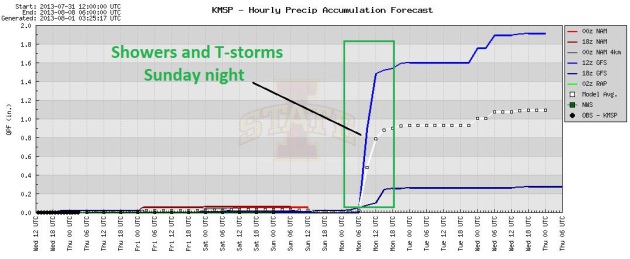
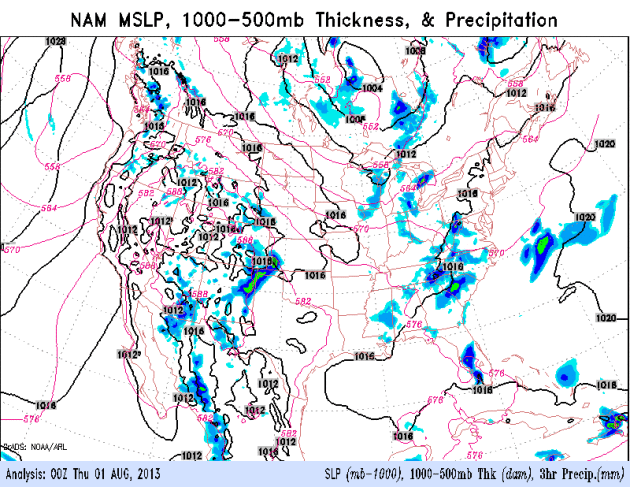
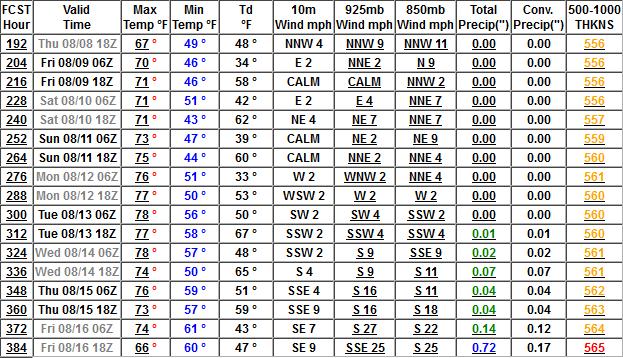
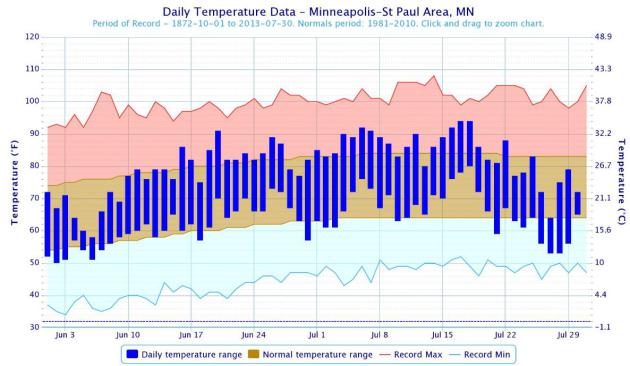
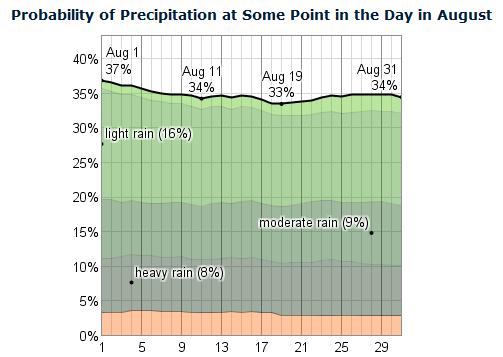

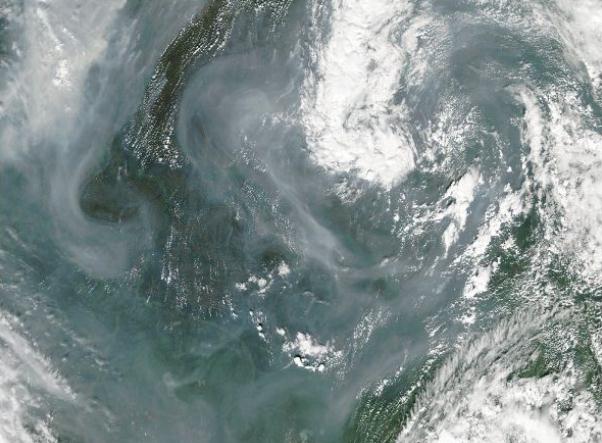
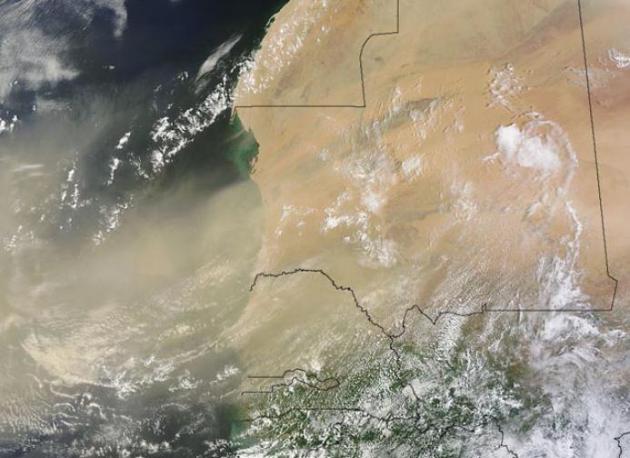
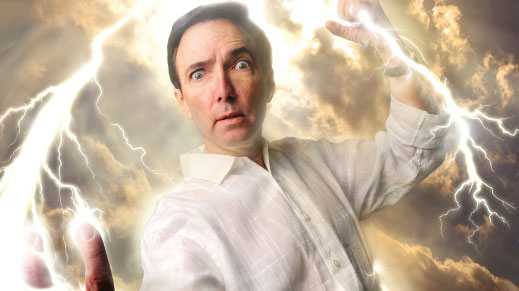
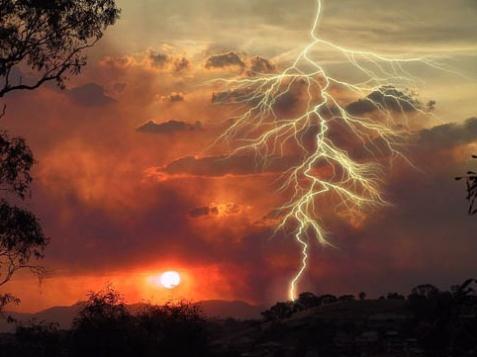

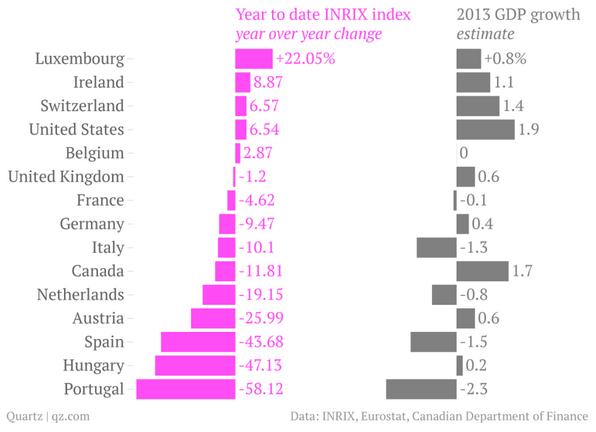
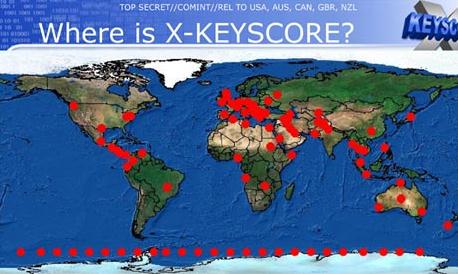
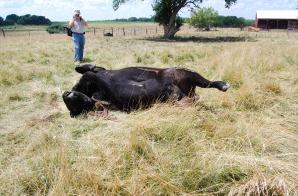
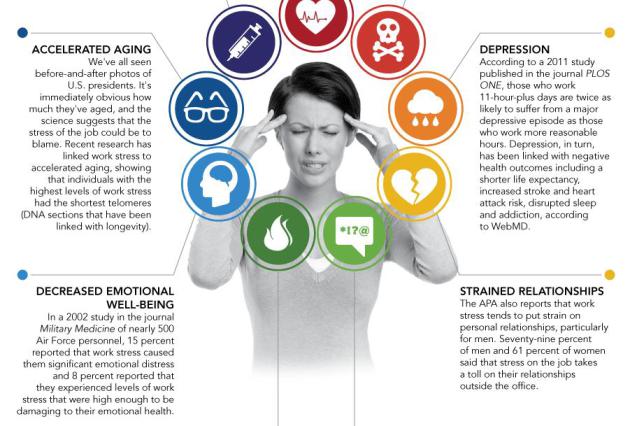


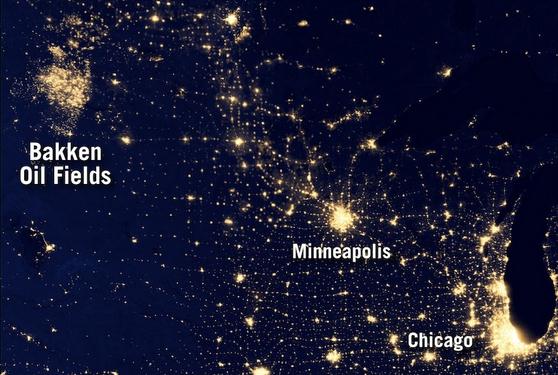
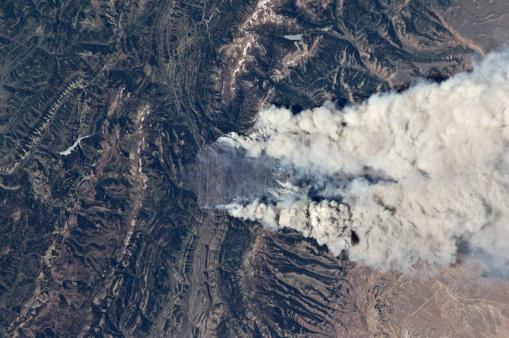




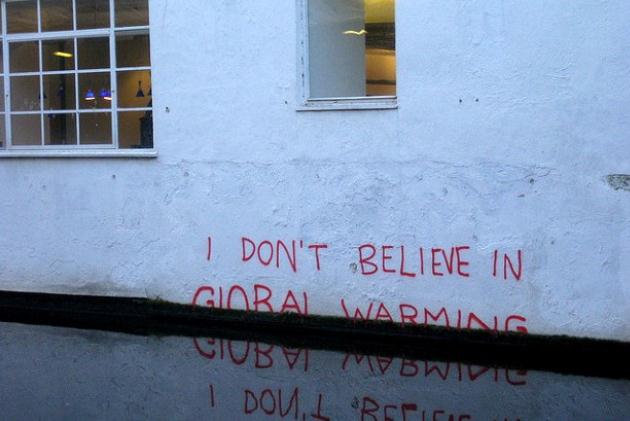
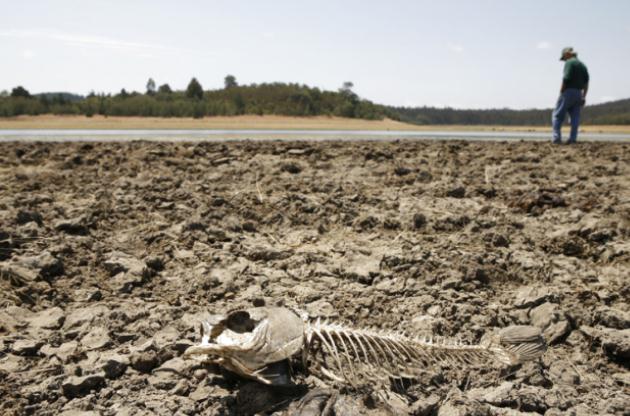


No comments:
Post a Comment